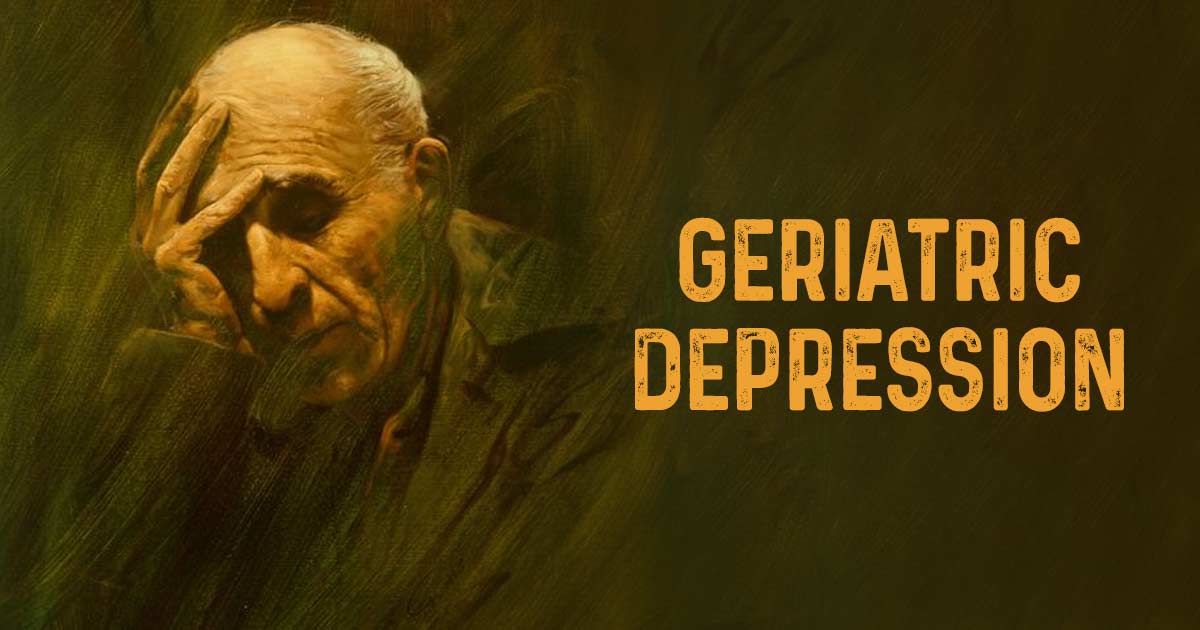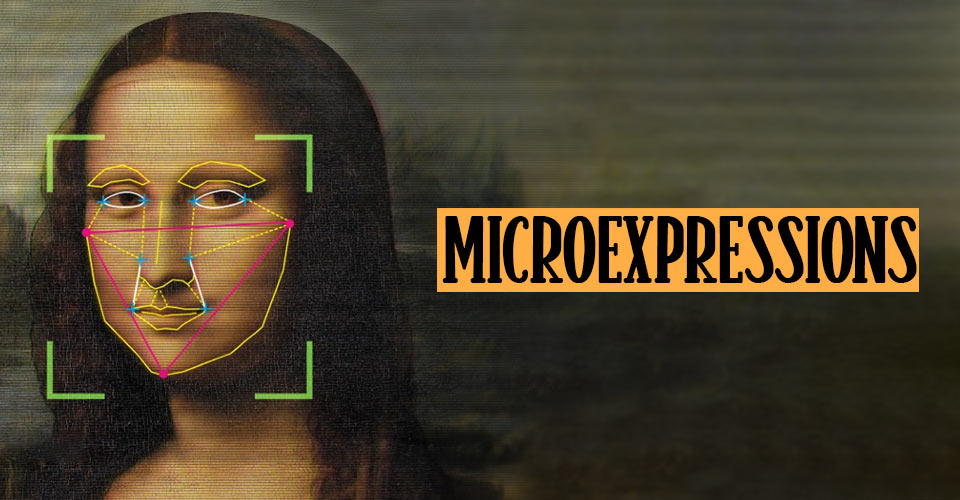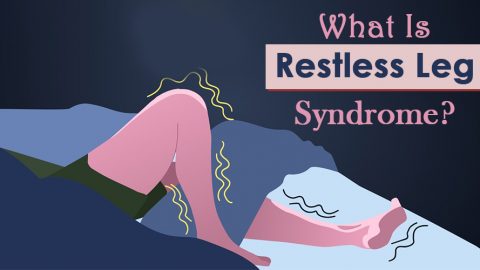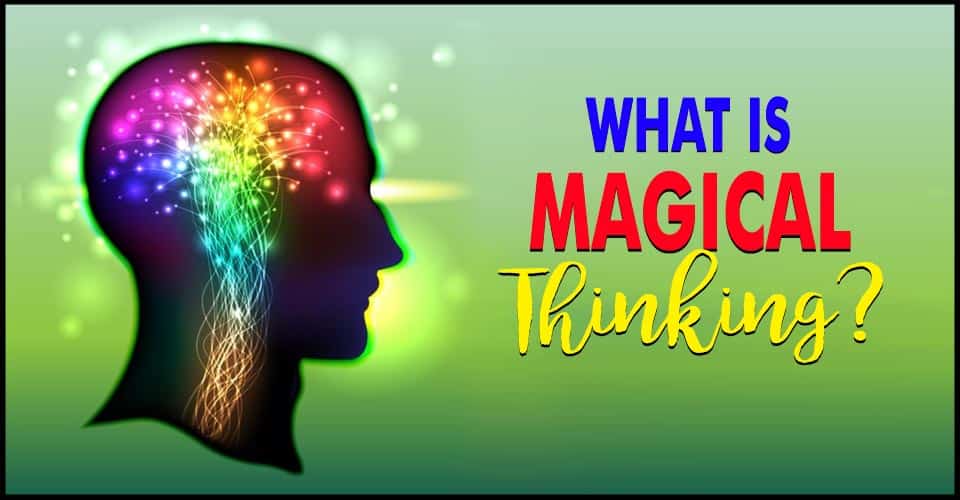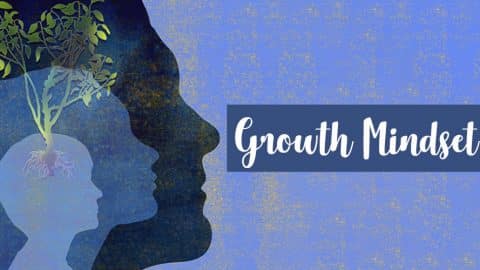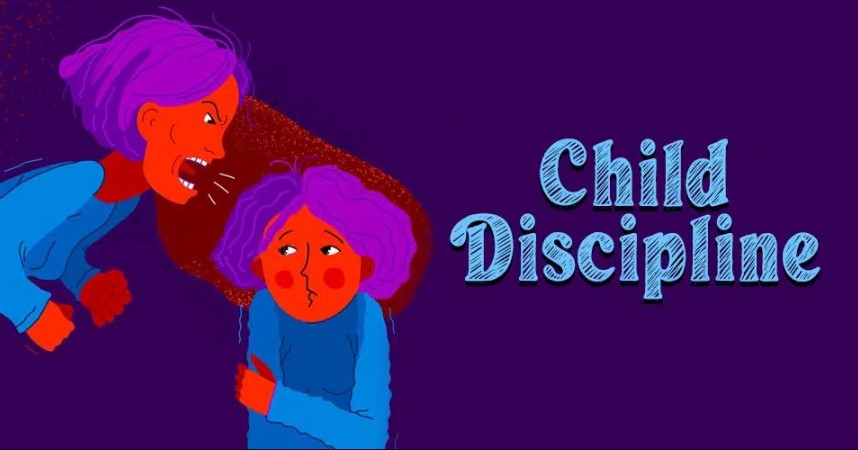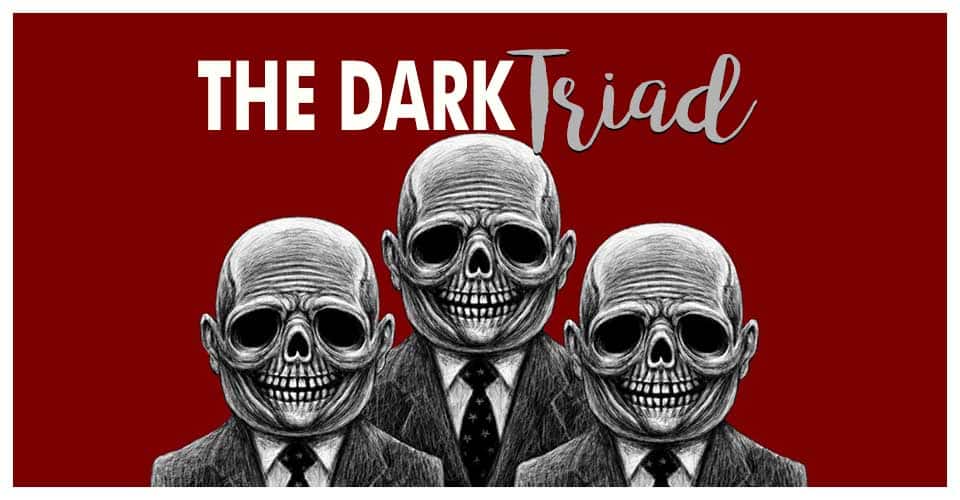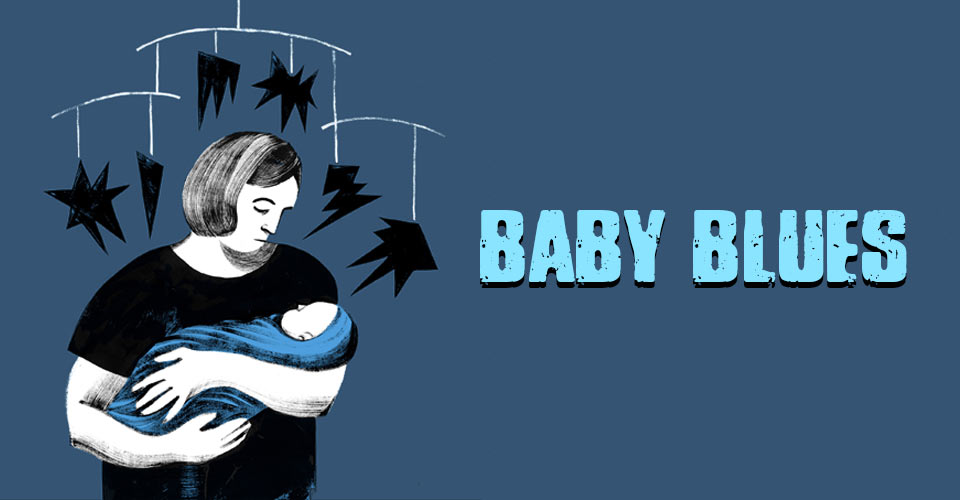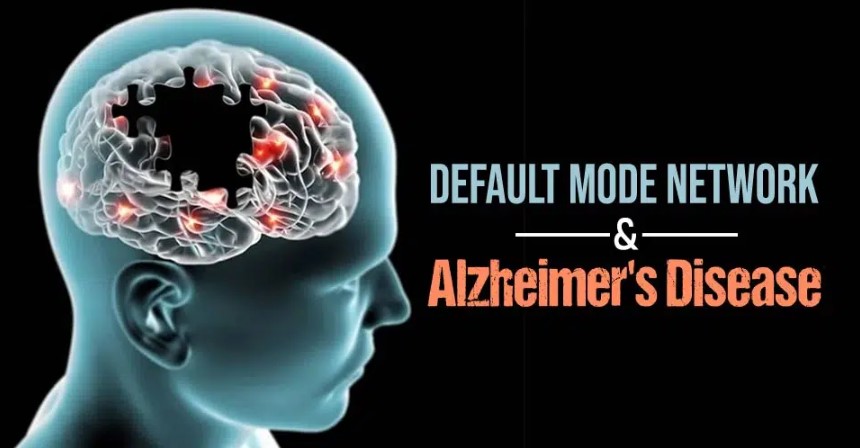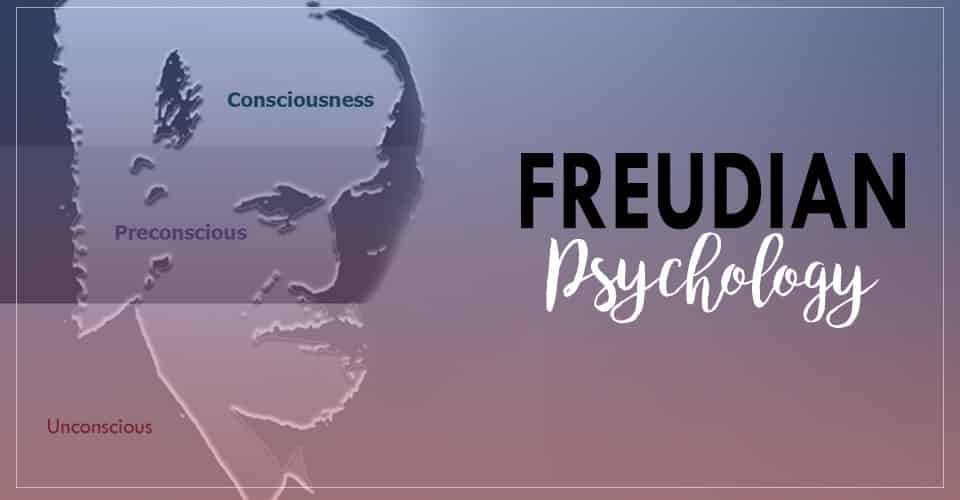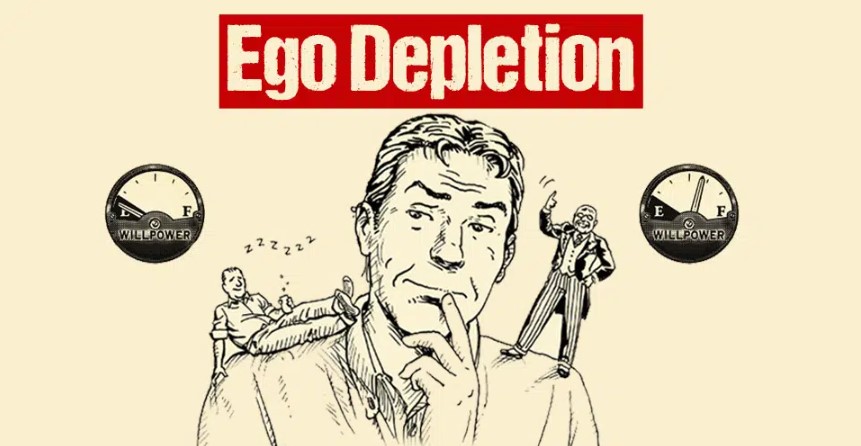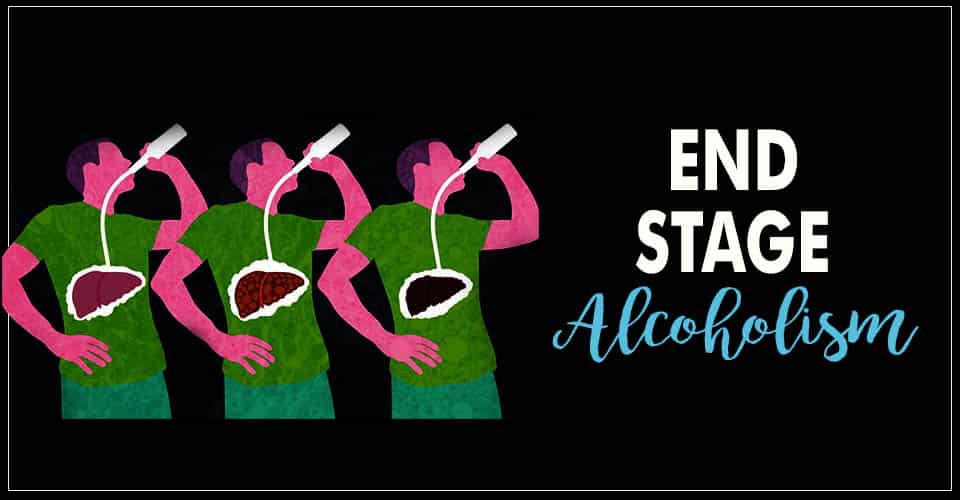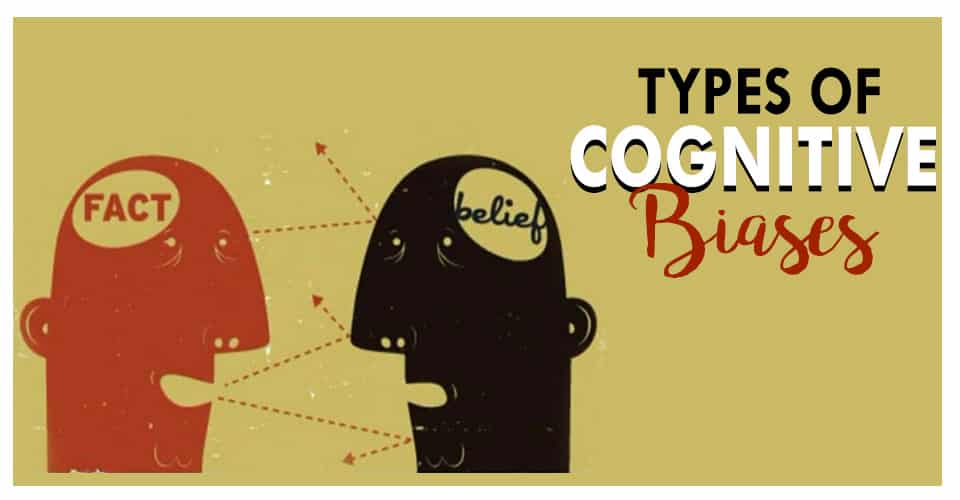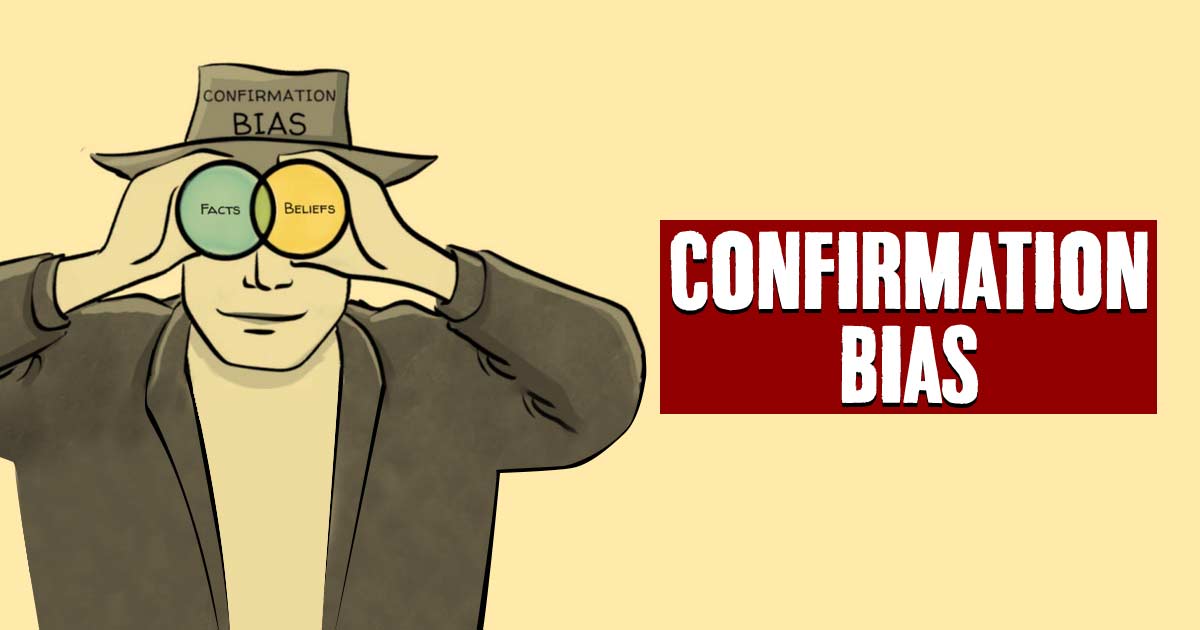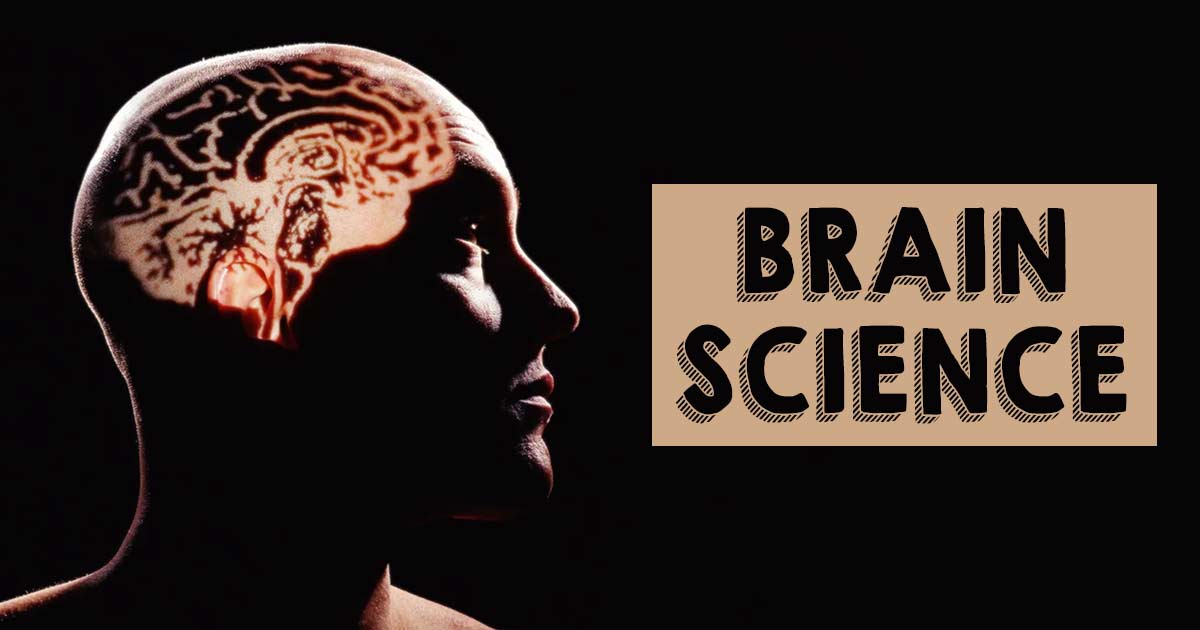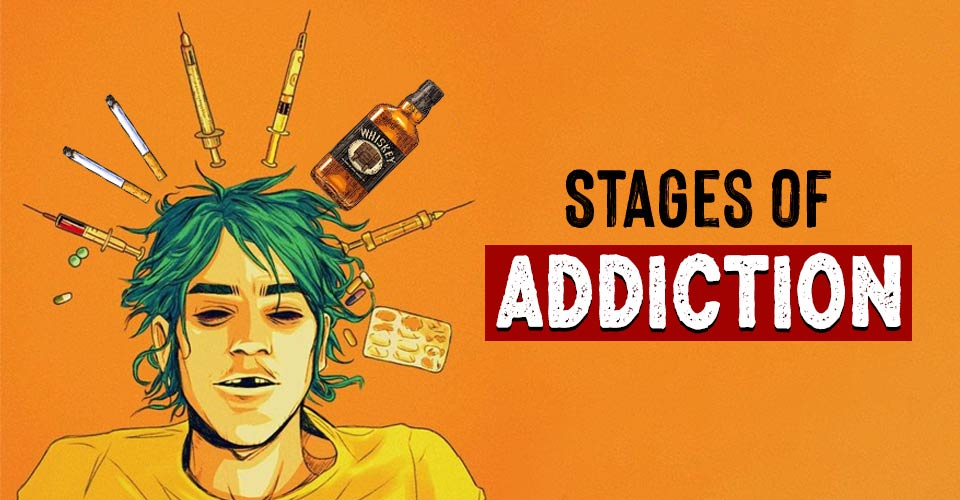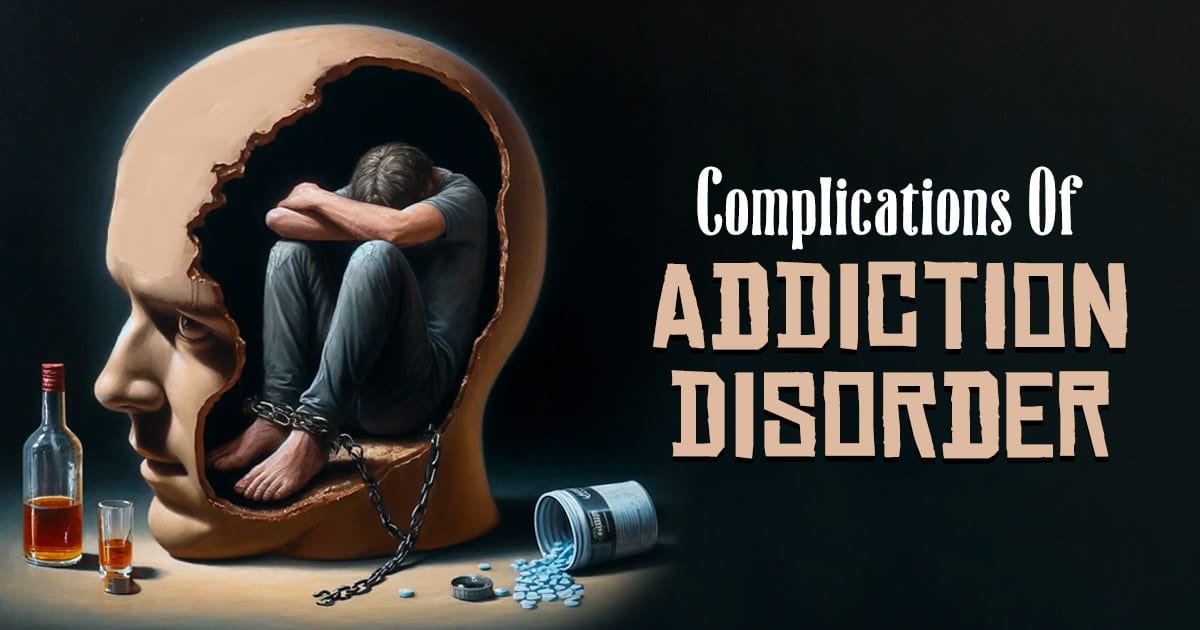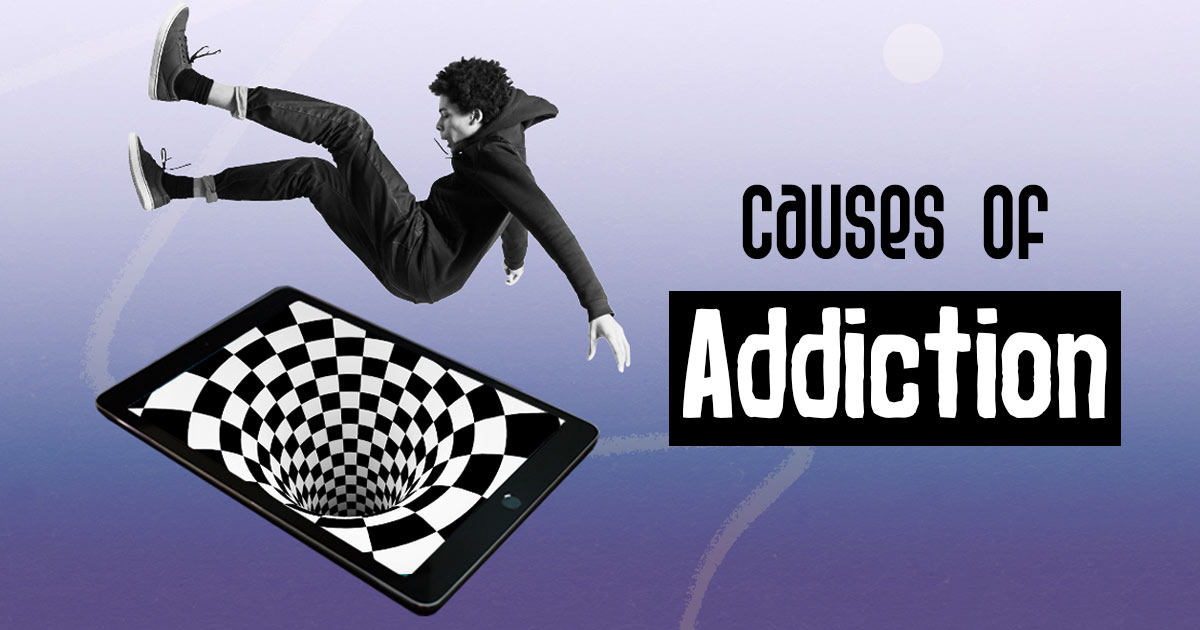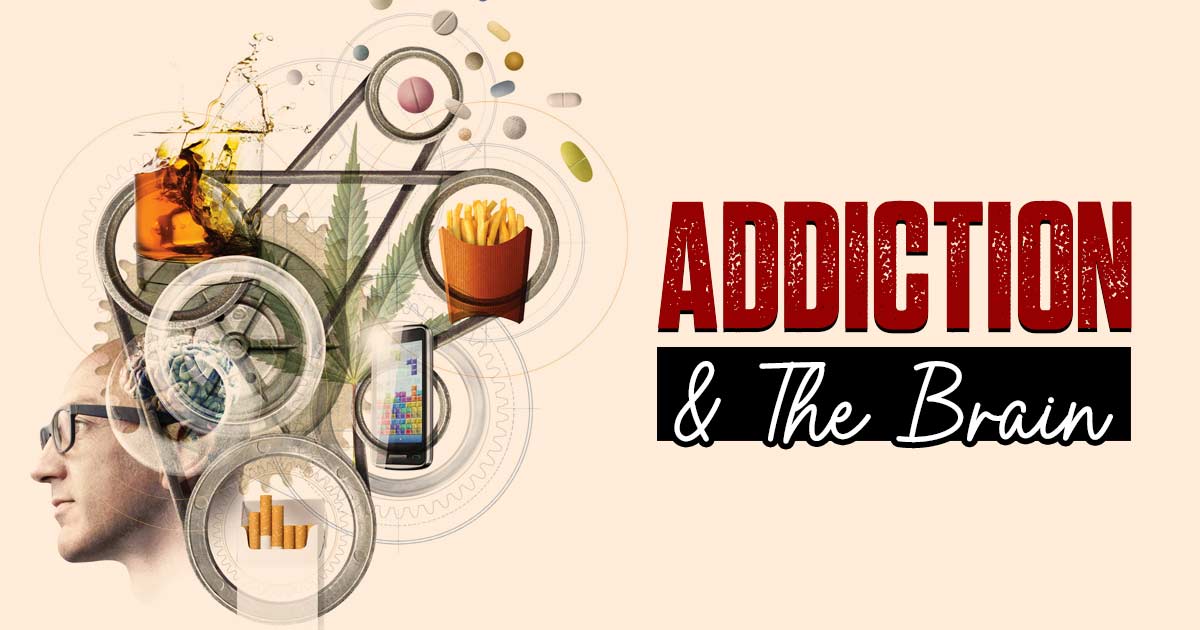Geriatric depression is a type of depression that affects older adults, usually 65 years of age or older. Unlike depression in younger individuals, depression in older adults can have unique features and may be more challenging to diagnose due to the presence of other medical conditions that can mimic or exacerbate depressive symptoms.
What Is Geriatric Depression?
Geriatric depression, also known as late-life depression 1 Sekhon, S., Patel, J., & Sapra, A. (2022). Late Onset Depression. In StatPearls. StatPearls Publishing. Available from: https://www.ncbi.nlm.nih.gov/books/NBK551507/ or elderly depression, is a mental health condition characterized by persistent feelings of sadness, hopelessness, and loss of interest in activities. Research indicates that approximately 28% of older adults 2 Cai, H., Jin, Y., Liu, R., Zhang, Q., Su, Z., Ungvari, G. S., Tang, Y. L., Ng, C. H., Li, X. H., & Xiang, Y. T. (2023). Global prevalence of depression in older adults: A systematic review and meta-analysis of epidemiological surveys. Asian journal of psychiatry, 80, 103417. https://doi.org/10.1016/j.ajp.2022.103417 experience depression, with women being more likely to be diagnosed than men.
Depression is a major concern for older adults, and they are at a higher risk of experiencing subsyndromal depression, a common form 3 Sadek, N., & Bona, J. (2000). Subsyndromal symptomatic depression: a new concept. Depression and anxiety, 12(1), 30–39. https://doi.org/10.1002/1520-6394(2000)12:1<30::AID-DA4>3.0.CO;2-P of depression that may not meet the full criteria for major depression.
Despite not meeting the full criteria, subsyndromal depression can still significantly impact an individual’s quality of life, and if left untreated, it can progress into major depression.
DSM-5 does not specifically include a diagnosis of geriatric depression. However, if the symptoms persist over two weeks 4 Bains, N., & Abdijadid, S. (2022). Major Depressive Disorder. In StatPearls. StatPearls Publishing. Available from: https://www.ncbi.nlm.nih.gov/books/NBK559078/ , these may interfere with the social, occupational, and other areas of the daily functioning of an older adult.
Read More About Depression Here
Signs and Symptoms of Geriatric Depression
Some common signs and symptoms 5 Fiske, A., Wetherell, J. L., & Gatz, M. (2009). Depression in older adults. Annual review of clinical psychology, 5, 363–389. https://doi.org/10.1146/annurev.clinpsy.032408.153621 of geriatric depression include:
- Feelings of sadness, hopelessness, or emptiness
- Loss of interest in hobbies and activities once enjoyed
- Changes in appetite, weight, and sleep patterns
- A lack of motivation, decreased energy, and feelings of fatigue
- Difficulty concentrating, making decisions, or remembering things
- Physical complaints such as pain, headaches, or digestive problems
- Restlessness or irritability
- Feeling guilty or worthless
- Thoughts of suicide or self-harm

Causes of Geriatric Depression
Geriatric depression can be caused by a variety of factors, including:
1. Biological Factors
Changes in the brain structure, and imbalances 6 Remes, O., Mendes, J. F., & Templeton, P. (2021). Biological, Psychological, and Social Determinants of Depression: A Review of Recent Literature. Brain sciences, 11(12), 1633. https://doi.org/10.3390/brainsci11121633 in hormonal levels such as serotonin, or norepinephrine due to aging can contribute to depression.
2. Family History
A family history 7 Taqui, A. M., Itrat, A., Qidwai, W., & Qadri, Z. (2007). Depression in the elderly: does family system play a role? A cross-sectional study. BMC psychiatry, 7, 57. https://doi.org/10.1186/1471-244X-7-57 of depression or other mental health conditions can increase the risk of depression in older adults.
3. Health Problems
Painful conditions such as arthritis, neuropathy, and back pain 8 Zis, P., Daskalaki, A., Bountouni, I., Sykioti, P., Varrassi, G., & Paladini, A. (2017). Depression and chronic pain in the elderly: links and management challenges. Clinical interventions in aging, 12, 709–720. https://doi.org/10.2147/CIA.S113576 can cause or worsen depression.
4. Social Isolation and Loneliness
Older adults may experience 9 Donovan, N. J., & Blazer, D. (2020). Social Isolation and Loneliness in Older Adults: Review and Commentary of a National Academies Report. The American journal of geriatric psychiatry : official journal of the American Association for Geriatric Psychiatry, 28(12), 1233–1244. https://doi.org/10.1016/j.jagp.2020.08.005 social isolation and loneliness due to factors such as retirement, or mobility issues which can contribute to depression. Stressful life events such as the loss of a spouse 10 Agrawal, N., & Jhingan, H. P. (2002). Life events and depression in elderly. Indian journal of psychiatry, 44(1), 34–40. or friend, financial difficulties, or significant life transitions can also contribute to depression.
5. Other Risk Factors for Depression in Older People
There are other risk factors 11 Sözeri-Varma G. (2012). Depression in the elderly: clinical features and risk factors. Aging and disease, 3(6), 465–471. that have been identified as potentially increasing the risk of depression in older adults, such as the use of aspirin, experiencing sleep disturbances, hearing or visual impairment, and having a diagnosis of cardiac disease.
These factors should be taken into consideration when evaluating an older adult’s mental health and assessing their risk for depression.

Impacts of Geriatric Depression on Mental Health
Geriatric depression can have a significant impact 12 Bradley, B., Backus, D., & Gray, E. (2016). Depression in the older adult: What should be considered?. The mental health clinician, 6(5), 222–228. https://doi.org/10.9740/mhc.2016.09.222 on an older adult’s mental health and well-being, such as:
1. Reduced Quality of Life
Depression can cause a decrease in quality of life for older adults, as it can lead to a loss of interest 13 Hohls, J. K., König, H. H., Quirke, E., & Hajek, A. (2021). Anxiety, Depression and Quality of Life-A Systematic Review of Evidence from Longitudinal Observational Studies. International journal of environmental research and public health, 18(22), 12022. https://doi.org/10.3390/ijerph182212022 in previously enjoyed activities and social connections.
2. Increased Risk of Suicide
Depression is a significant risk factor 14 Fernandez-Rodrigues, V., Sanchez-Carro, Y., Lagunas, L. N., Rico-Uribe, L. A., Pemau, A., Diaz-Carracedo, P., Diaz-Marsa, M., Hervas, G., & de la Torre-Luque, A. (2022). Risk factors for suicidal behaviour in late-life depression: A systematic review. World journal of psychiatry, 12(1), 187–203. https://doi.org/10.5498/wjp.v12.i1.187 for suicide in older adults, and suicide rates among this population are higher than in other age groups.
3. Reduced Independence
Depression can make it difficult for older adults to perform daily tasks and take care of themselves, leading to a loss of independence.
Diagnosis of Geriatric Depression
Healthcare professionals may use various self-assessment 15 Heidenblut, S., & Zank, S. (2020). Screening for Depression in Old Age With Very Short Instruments: The DIA-S4 Compared to the GDS5 and GDS4. Gerontology & geriatric medicine, 6, 2333721420981328. https://doi.org/10.1177/2333721420981328 tests to outline an appropriate treatment plan for geriatric depression, such as:
- Geriatric Depression Scale (GDS) 16 Jeong, H., Nam, B., Jo, S. J., Lee, W. C., & Yim, H. W. (2020). Clinical Usefulness of the Geriatric Depression Scale to Identify the Elderly at Risk of Suicide. Psychiatry investigation, 17(5), 481–486. https://doi.org/10.30773/pi.2019.0299
- Patient Health Questionnaire-9 (PHQ-9) 17 Kroenke, K., Spitzer, R. L., & Williams, J. B. (2001). The PHQ-9: validity of a brief depression severity measure. Journal of general internal medicine, 16(9), 606–613. https://doi.org/10.1046/j.1525-1497.2001.016009606.x
- Beck Depression Inventory (BDI) 18 García-Batista, Z. E., Guerra-Peña, K., Cano-Vindel, A., Herrera-Martínez, S. X., & Medrano, L. A. (2018). Validity and reliability of the Beck Depression Inventory (BDI-II) in general and hospital population of Dominican Republic. PloS one, 13(6), e0199750. https://doi.org/10.1371/journal.pone.0199750
- Hamilton Depression Rating Scale (HDRS) 19 Bobo, W. V., Angleró, G. C., Jenkins, G., Hall-Flavin, D. K., Weinshilboum, R., & Biernacka, J. M. (2016). Validation of the 17-item Hamilton Depression Rating Scale definition of response for adults with major depressive disorder using equipercentile linking to Clinical Global Impression scale ratings: analysis of Pharmacogenomic Research Network Antidepressant Medication Pharmacogenomic Study (PGRN-AMPS) data. Human psychopharmacology, 31(3), 185–192. https://doi.org/10.1002/hup.2526
Treatment of Geriatric Depression
Geriatric depression treatment includes various forms 20 Kok, R. M., & Reynolds, C. F., 3rd (2017). Management of Depression in Older Adults: A Review. JAMA, 317(20), 2114–2122. https://doi.org/10.1001/jama.2017.5706 of psychotherapy and medication, these are:
I. Psychotherapy
Therapies can be an effective form 21 Raue, P. J., McGovern, A. R., Kiosses, D. N., & Sirey, J. A. (2017). Advances in Psychotherapy for Depressed Older Adults. Current psychiatry reports, 19(9), 57. https://doi.org/10.1007/s11920-017-0812-8 to deal with older people with geriatric depression. It includes methods of techniques like,
1. Cognitive-behavioral Therapy (CBT)
CBT is a type of therapy 22 Gautam, M., Tripathi, A., Deshmukh, D., & Gaur, M. (2020). Cognitive Behavioral Therapy for Depression. Indian journal of psychiatry, 62(Suppl 2), S223–S229. https://doi.org/10.4103/psychiatry.IndianJPsychiatry_772_19 that focuses on changing negative thought patterns and behaviors. It can help individuals with geriatric depression identify and challenge negative thoughts that may be contributing to their symptoms.
Read More About CBT Here
2. Interpersonal Therapy (IPT)
In geriatric depression, IPT can be particularly effective in addressing 23 Miller, M. D., Cornes, C., Frank, E., Ehrenpreis, L., Silberman, R., Schlernitzauer, M. A., Tracey, B., Richards, V., Wolfson, L., Zaltman, J., Bensasi, S., & Reynolds, C. F., 3rd (2001). Interpersonal psychotherapy for late-life depression: past, present, and future. The Journal of psychotherapy practice and research, 10(4), 231–238. issues related to loss and grief, as well as social isolation and role transitions. For example, an older adult who has recently lost a spouse may benefit from IPT by exploring their feelings of grief and learning new coping strategies to deal with their loss.
Read More About Psychotherapy Here
II. Medication
Antidepressant medications 24 Avasthi, A., & Grover, S. (2018). Clinical Practice Guidelines for Management of Depression in Elderly. Indian journal of psychiatry, 60(Suppl 3), S341–S362. https://doi.org/10.4103/0019-5545.224474 , such as selective serotonin reuptake inhibitors (SSRIs) and tricyclic antidepressants (TCAs), are commonly used to treat geriatric depression. However, older adults may be more sensitive to the side effects of these medications, so careful monitoring is required.
III. Electroconvulsive Therapy (ECT)
ECT is a treatment option for older adults with severe depression who have not responded to other treatments. It involves passing an electric current 25 Salik, I., & Marwaha, R. (2022). Electroconvulsive Therapy. In StatPearls. StatPearls Publishing. Available from: https://www.ncbi.nlm.nih.gov/books/NBK538266/ through the brain to induce a seizure and is typically administered under general anesthesia.

How to Help an Older Adult with Depression
Consider the following tips to help an older adult 26 Avasthi, A., & Grover, S. (2018). Clinical Practice Guidelines for Management of Depression in Elderly. Indian journal of psychiatry, 60(Suppl 3), S341–S362. https://doi.org/10.4103/0019-5545.224474 with depression:
- Be patient and understanding towards an older adult, as depression can be a complex and difficult condition to manage.
- Encourage older people to engage in social activities and maintain social connections with family and friends.
- Encourage them to engage in physical activity, even if it’s just a daily walk.
- Help them to address any health issues that may be contributing to their depression, such as hearing or vision problems, chronic pain, or medication side effects.
- Offer assistance with tasks that may feel overwhelming or challenging for the individual.
- Consult a mental health professional, if the symptoms 27 Reynolds, C. F., 3rd, Jeste, D. V., Sachdev, P. S., & Blazer, D. G. (2022). Mental health care for older adults: recent advances and new directions in clinical practice and research. World psychiatry : official journal of the World Psychiatric Association (WPA), 21(3), 336–363. https://doi.org/10.1002/wps.20996 persist for 2 weeks or more in the older adult.
Takeaway
Geriatric depression is a common condition among older adults, and it can have a significant impact on their overall quality of life. It is important to be aware of the risk factors associated with geriatric depression, such as sleep disturbances, hearing or a visual impairment, and cardiac disease.
If an older adult is exhibiting symptoms of depression, it is important to encourage them to seek professional help and provide emotional support.
At A Glance
- Geriatric depression is a type of depression that affects older adults.
- Risk factors of geriatric depression include sleep disturbances, hearing or visual impairment, and cardiac disease.
- Symptoms of geriatric depression include sadness, loss of interest, changes in appetite or sleep patterns, and feelings of hopelessness or worthlessness in older adults.
- Treatment of Geriatric depression may include medication, therapy, and lifestyle changes such as exercise and healthy eating.
- Social connections and emotional support are important for managing geriatric depression.
- With the right support, many older adults with geriatric depression can improve their condition and enjoy a better quality of life.
Frequently Asked Questions (FAQs)
1. Can geriatric depression be prevented?
Geriatric depression may not be completely preventable, but steps such as regular physical activity, social support, and engaging in meaningful activities can help reduce the risk of developing it.
2. Is it common for elderly individuals to experience depression?
Depression is a significant concern for elderly individuals, as studies indicate that a considerable proportion of older adults experience depressive symptoms. The prevalence of depression in older adults increases with age and is higher in those with chronic illnesses or medical conditions.
3. How is geriatric depression different from depression in younger adults?
Geriatric depression can have different symptoms and may be more likely to be associated with physical symptoms such as fatigue and pain. Additionally, older adults may be more likely to have medical conditions or take medications that can contribute to depression.

